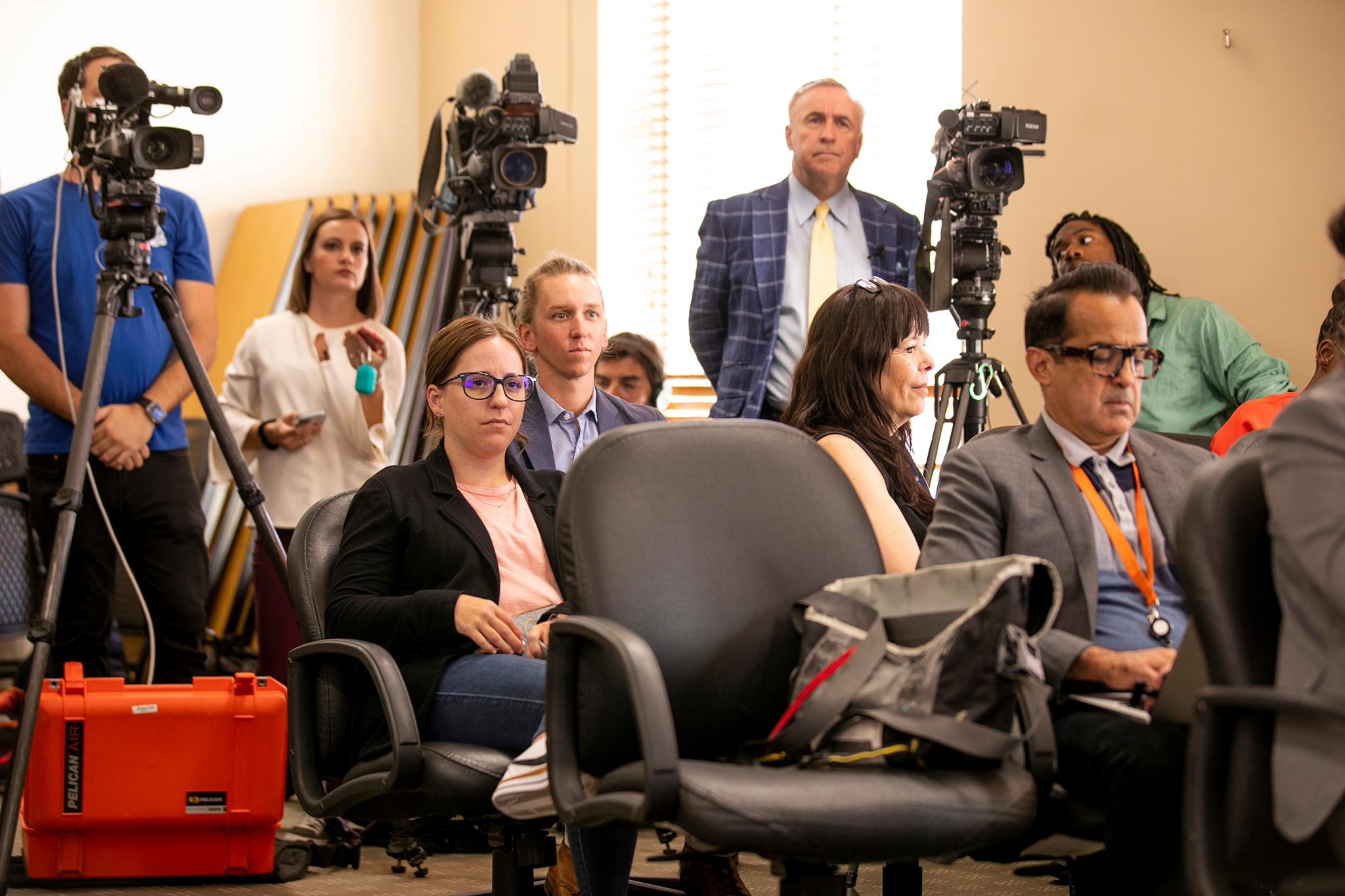Denver Mayor Mike Johnston plans to spend $48.6 million on his attempt to house 1,000 people from the streets by the end of this year. He has rebranded the plan House1000.
At a Tuesday press conference, Johnston said he can pay for this new initiative without cutting back on the city's other priorities, including things like fixing pot-holes, improving parks and sidewalks, deferred maintenance on the Colorado Convention Center, new-construction permitting and law-enforcement response time.
His plan is to put people directly into leased units, converted hotels and new microunits with wraparound services including mental health and addiction treatment and workforce placement.
After people get into housing, Johnston said the city will "permanently" close encampments to activate streets, parks and public spaces for all to use.
The city's current strategy of moving encampments from one block to the next is not working, Johnston says. "We're shuffling people without long-term resolution."
When the city can open new housing, Johnston plans to move the occupants of entire encampments into communities together and then increase enforcement, cultural events and business activities in public spaces to ensure encampments do not return.
He cited Civic Center Park's shuttered encampments as an example of where that's worked.
What will the $48.6 million buy?
The city will spend $18.9 million on purchasing and operating the Best Western hotel in Central Park and another $5.4 million on leasing and operating additional hotels.
The mayor plans to dedicate another $19.6 million to build pallet shelters and tiny homes. That money will go to prepare the sites, pay for utilities, retrofit the spaces, and to operate support programs at the microcommunities.
Another $4 million will go to rapidly rehousing people into leased units.
The city will also spend $750,000 on Denver's encampment response, including outreach, transportation, temporary port-a-lets (aka bathrooms and washing stations), and other services.
Here's where the money is coming from.
The Department of Housing Stability (HOST) will provide $37 million for the efforts out of its $250 million total budget.
"The great bulk of these dollars come from our existing HOST budget," Johnston said.
Of that, federal pandemic emergency funds are covering the majority of the cost to purchase of the Best Western, an acquisition in collaboration with the Denver Housing Authority that began in the Hancock era.
HOST will also spend $9.9 million from the taxpayer-funded Homelessness Resolution Fund, a .25% sales tax voters first approved in 2020 and re-upped in 2022.
Another $3.3 million is expected in savings from turning recreation centers into emergency overnight shelters used during extreme weather. By using the money on moving people out of homelessness altogether, there should be less need during emergency weather events.
The city estimates another $3.1 million will remain from the Best Western purchase. That money will be reallocated to House1000.
And $2 million will come directly from HOST's budget.

Another $15 million will come from other city sources.
That includes $8 million from COVID-response funds from the city's General Fund. That money will be spent on temporary, individual shelter.
An additional $4.7 million will come from interest earned on dwindling American Rescue Plan Act funding the city still hasn't spent.
A final $2 million will come from capital improvement funding from real estate acquisitions that came in under budget.
This money will come from the 2023 budget.
"The plan is fully paid for," Johnston says. "We have a path for success on that plan."
What are the next steps?
City Council members will review any funding that requires their approval.
Johnston has until December 31 to house 1,000 people off of the streets and until the end of his term to end homelessness altogether, if he's going to live up to promises he made during the 2023 election.
He wants to help all people in Denver climb the ladder to home ownership.
Through the end of the month, Johnston is holding community meetings, where people can weigh in on his plans. He has already met with 4,000 Denverites at 29 town halls.
On Thursday, Johnston will release his 2024 budget. He says he will include more funding for homelessness prevention -- for example, eviction prevention and rental assistance -- in next year's expenses.
How likely does Johnston think it is that he will reach his goal of housing 1,000 people from the streets?
"We are confident that we're going to be able to deliver on that," Johnston says. "We have a good line of sight to the units to be able to get people moved."
The mayor's office has 10 appointees solely focused on this issue and roughly 50 city employees working out of the emergency operations center on homelessness.
For more information on House1000, go to the project's website.
Correction: Johnston's spokesperson clarified that 10 of the people working on the issue are mayoral appointees, and the other 50 working out of the emergency operations center are city staff. We updated the story for accuracy.











